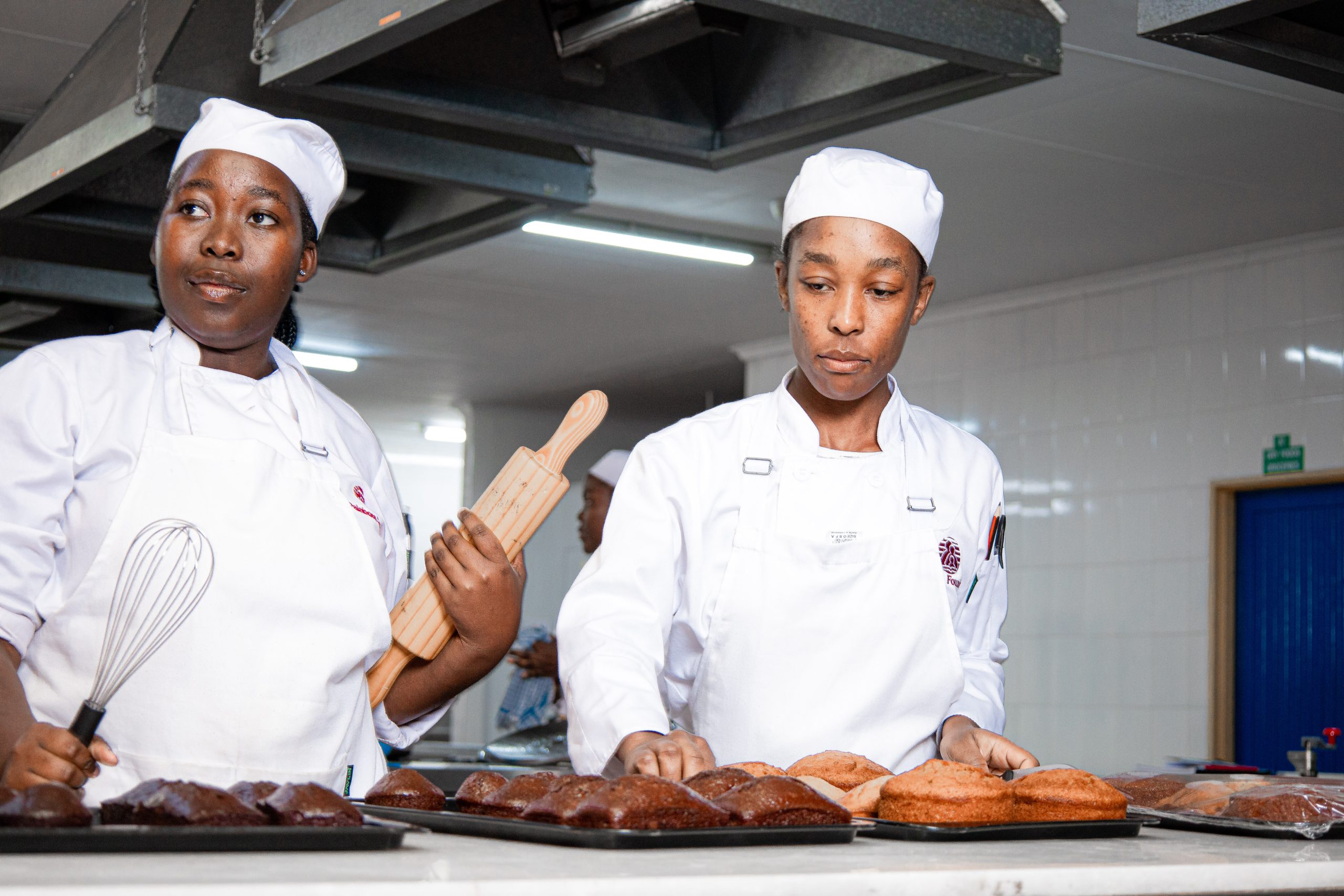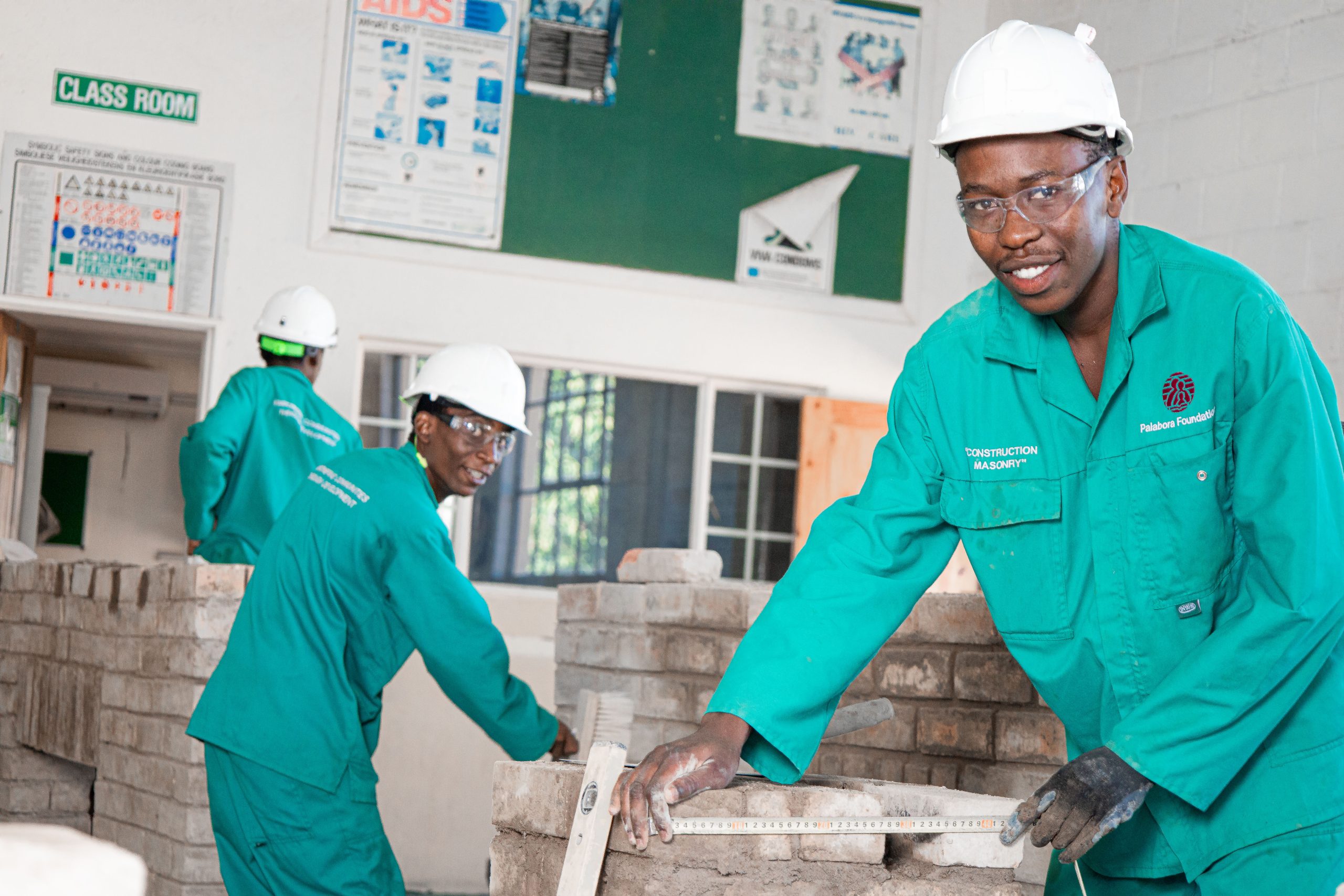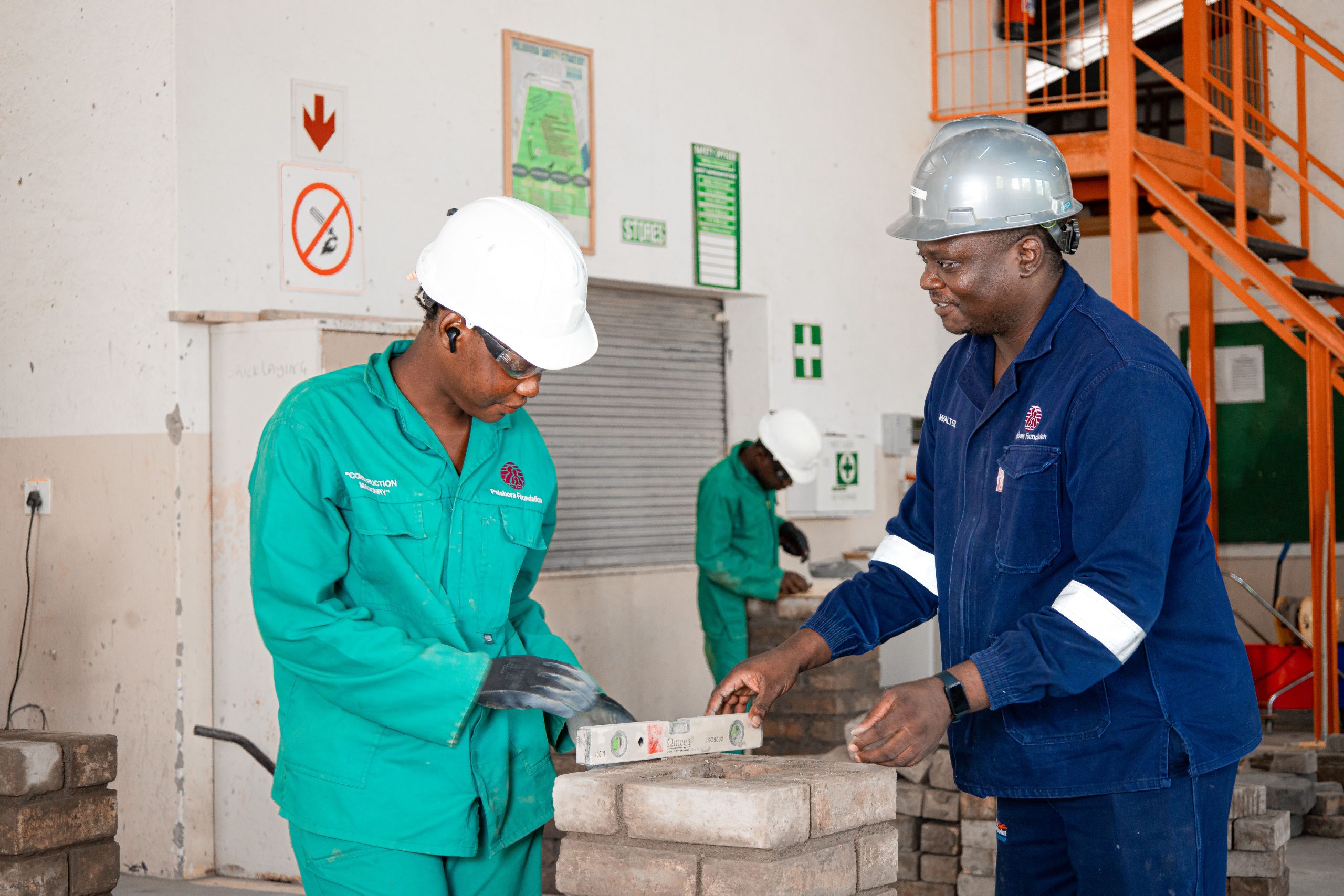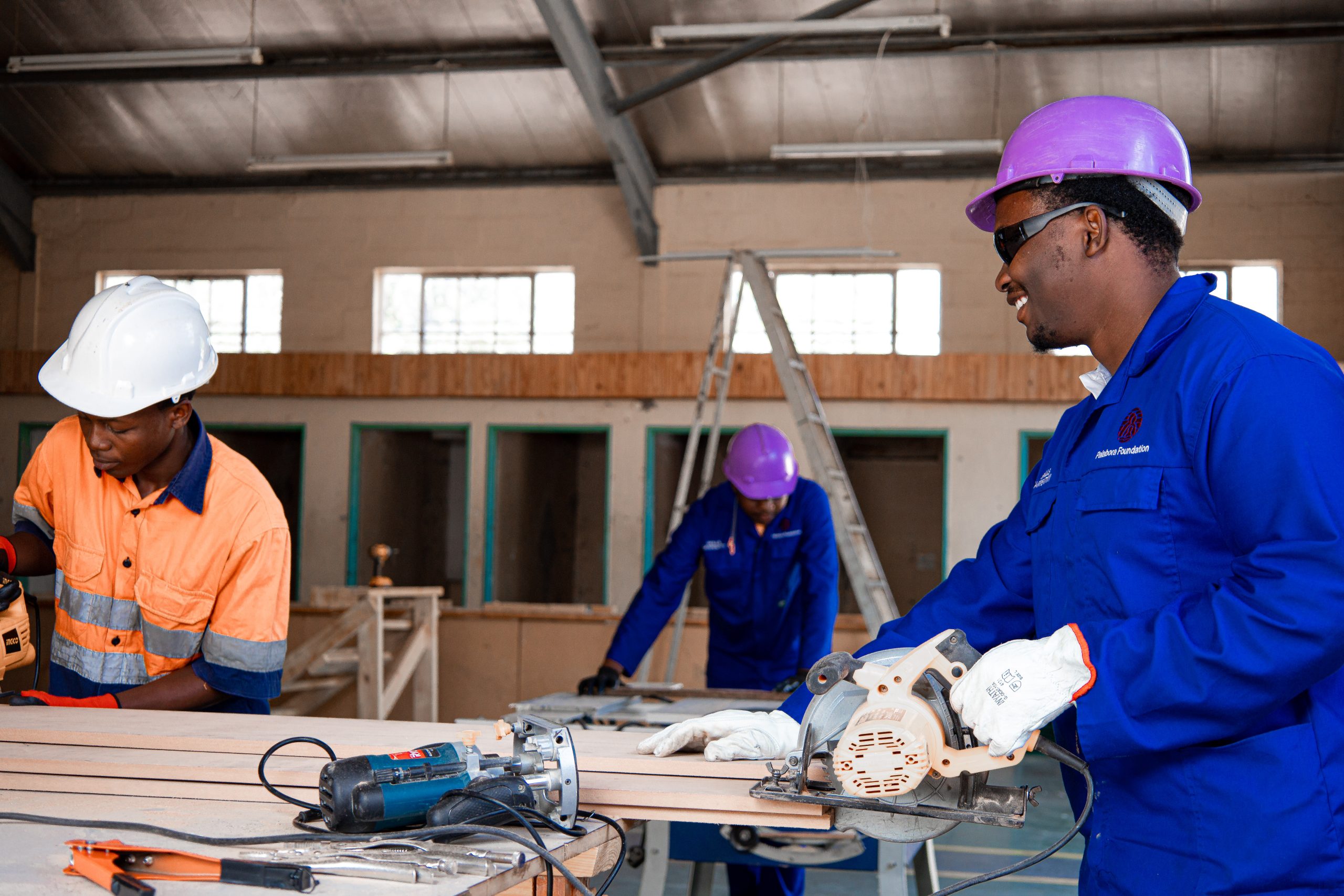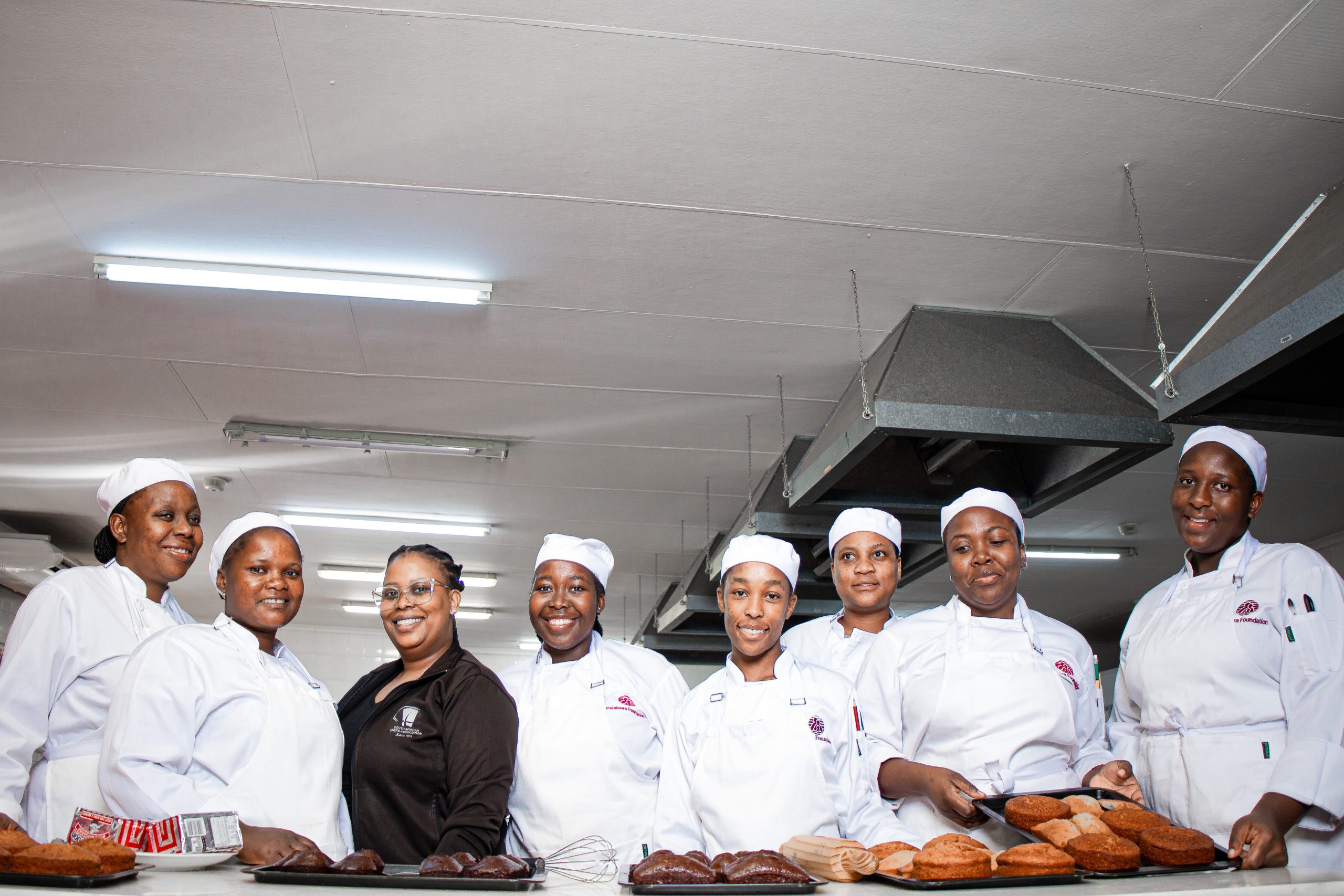“Tell me and I forget, teach me and I may remember, involve me and I learn.”.
— Benjamin Franklin
No other investment yields as great a return as the investment in education. An educated workforce is the foundation of every community and the future of every economy..
– Brad Henry
Skills Development
South Africa is full of opportunities for skilled people, so long as the skills developed match industry needs. That’s why we have chosen skills development training as a focus area. We offer accessible, affordable and relevant skills training and match practical training with placements in industry to help people succeed.
Skills Development Training At A Glance
South Africa is full of opportunities for skilled people, so long as the skills developed match industry needs. That’s why The Palabora Foundation has chosen skills development training as a focus area. We offer accessible, affordable and relevant skills training and match practical training with placements in industry to help people succeed. Working with out of school youth and other community members, we offer training the following programmes:
kills development training provides short job-related skills training courses to out of school youth and other community members in Community House Building (Construction Masonry, Construction Carpentry), Food Preparation and Cooking. This allows trainees to seek employment in the formal and informal sector, or to start their own businesses or further their studies with Further Education and Training institutions (FET’s). This is in line with the provincial and national imperative of improving the skills competencies of people in municipalities and communities across the country.
Trainees registering for the courses pay a nominal fee for six months of training and the Foundation subsidizes the rest. This means that similar skills development courses at other institutions in the area can cost more than three times what the Foundation charges. As a result, these programmes are the most accessible and affordable option in the area. Short courses are also offered in Construction Masonry and Construction Carpentry.
Trainees receive both theory and practical training. Once they have completed all the modules in their syllabus, they are subjected to a summative assessment which determines if a trainee is competent or not yet competent in all the unit standards or a specific module. We accommodate people 16 years and above or with a minimum of grade 10 and above.
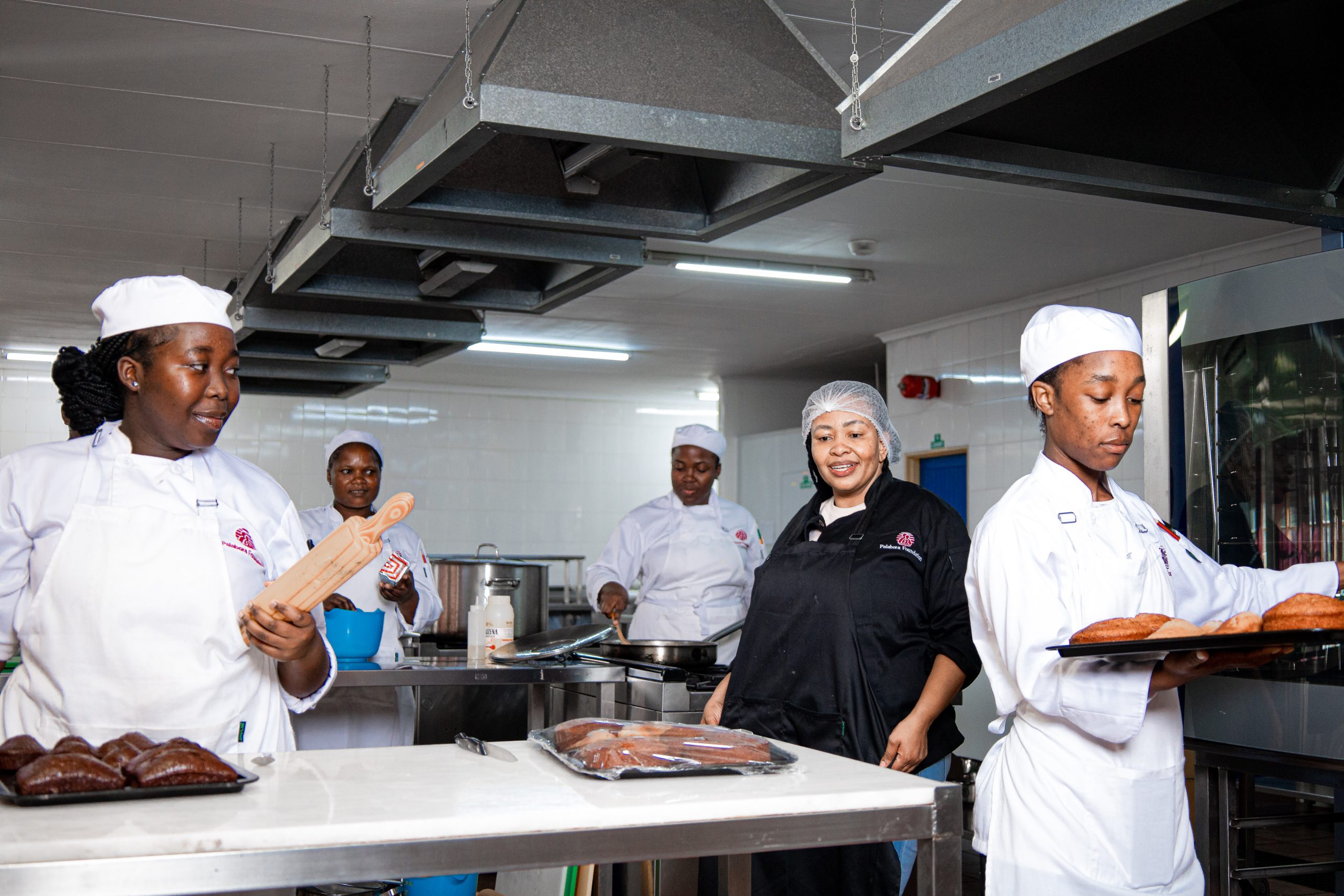
Impact of programmes on local communities
At a national level, the Skills Development Act of 1998 aims to develop the skills level of all the South African workforce and also improve the quality of life of workers and prospective workers. The Act spells clearly how training should be conducted, making sure that there is synergy between government departments and the private sector in that training is offered in accordance with the prescripts of the Act.
Phalaborwa has a 37.4% of people being unemployed. The skills we provide to our trainees allow them to be marketable to the industries and also provide an opportunity for them to start their own businesses.
With our training method primarily being practical based (on campus and in industry) this allows trainees to not only gain a tangible skill but also gain working experience whilst getting certified.
This also exposes trainees to possible employers within the Ba-Phalaborwa communities and surrounding areas through our MOUs with businesses.
Although our focus is on Ba-Phalaborwa communities, our work benefits people beyond the borders of Limpopo. Trainees develop and grow their businesses and seek opportunities where they can find them.
Construction Programmes
Construction Masonry
-
-
-
-
- This is a level 4 course
- Course include theory and practical modules and workplace practical training is offered
- Course duration 6 months
-
-
-
Construction Carpentry
-
-
-
-
- This is a level 4 course
- Course include theory and practical modules and workplace practical training is offered
- Course duration 6 months
-
-
-
Community House Building:
-
-
-
-
- This is a level 2 CETA accredited course
- Which is a combination of Construction Masonry and Carpentry with extended modules
- Course duration 12 months
-
-
-
Acquired Skills
- Bricklaying
- Plastering
- Painting
- Tiling
- Roofing
- Ceiling
- Reading and interpreting the house plans
-
Food Preparation And Cooking
Food Preparation and Cooking :
-
-
-
-
- Department carries 2 accreditations QCTO and Highfield International
- Course offerings are Occupational certificates in:
- Food Handler (level 2) – Course duration 3 months
- Kitchen Hand (level 3) – Course duration 6 months
- Professional Cook (level 4) – Course duration 12 months
- Modules have theory and practical components , training is carried out on campus , with workplace training offered through our industry training partners
-
-
-
Acquired Skills
- Food preparation methods (hot and cold kitchen)
- Food safety (hygiene and cleaning)
- Stock taking
- Plating and presentation
- Food services
- Table layouts
-
Who We Work With
SELATI RIVER LODGE: Work place training provider
CAJORI HOTEL: Work place training provider
OTHER EXTERNAL STAKEHOLDERS:
- Heqlen MICA (supplier)
- Makhoma Butchery (supplier)
